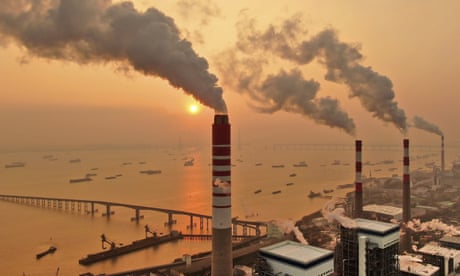Israeli government approves firing of Shin Bet chief Ronen Bar despite huge protests
Bar had strained relations with PM Benjamin Netanyahu, who is on trial for corruption and whose close aides are being investigated by the intelligence agency
The head of Shin Bet, Israel’s domestic intelligence agency, has been dismissed, according to a statement from the prime minister’s office, a week after Benjamin Netanyahu said he had lost confidence in him, and despite three days of protests against the move.
“The government unanimously approved prime minister Benjamin Netanyahu’s proposal to end ISA [Israeli Security Agency] director Ronen Bar’s term of office,” a statement said.
He will leave his post when his successor is appointed, or by 10 April at the latest, the statement said.
Bar, whose tenure was meant to end next year, was appointed by the previous Israeli government that briefly forced Netanyahu from power between June 2021 and December 2022.
His relations with Netanyahu had been strained even before the unprecedented Hamas attack on 7 October 2023, which sparked the war in Gaza, notably over proposed judicial reforms that had split the country.
Relations worsened after the 4 March release of the internal Shin Bet report on the Hamas attack. It acknowledged the agency’s own failure in preventing the attack, but also said “a policy of quiet had enabled Hamas to undergo massive military buildup”.
Shin Bet, which has wide-ranging powers, is also investigating Netanyahu’s close aides for alleged breaches of national security, including leaking classified documents to foreign media and taking money from Qatar, which is known to have given significant financial aid to Hamas.

Netanyahu is also facing a potential jail sentence at the conclusion of an ongoing corruption trial. The 75-year-old politician, who took power in Israel for the first time in 1996 and has served 17 years as prime minister, is giving evidence twice weekly.
Bar had already hinted that he would resign before the end of his term, taking responsibility for his agency’s failure to prevent the attack.
He did not attend the cabinet meeting but in a letter sent to ministers said the decision to fire him was “entirely tainted by … conflicts of interest” and driven by “completely different, extraneous and fundamentally unacceptable motives”.
Over the past three days, demonstrators protesting against the move to sack Bar have joined forces with protesters angry at the decision to resume fighting in Gaza, breaking a two-month-old ceasefire, while 59 Israeli hostages remain in the Palestinian territory.
Israeli bombardments in the past three days have killed at least 592 people according to the Gaza health ministry, mostly women and children.
Protesters in Jerusalem chanted: “Israel is not Turkey, Israel is not Iran,” and pointed to a series of recent moves by Netanyahu they call “red flags” for Israeli democracy. One is the unprecedented effort to dismiss Bar. Another is a bid by the prime minister and his allies to oust the attorney general, Gali Baharav-Miara, who has argued that removing Bar from his post might be unlawful.
Dr Amir Fuchs, a legal expert at the Israel Democracy Institute, said Netanyahu “has a problem he wants to solve by centralising as much power as possible and getting rid of all the gatekeepers and professionals … but this does not align with the interests of the state of Israel, only with those of the prime minister and his government.”



